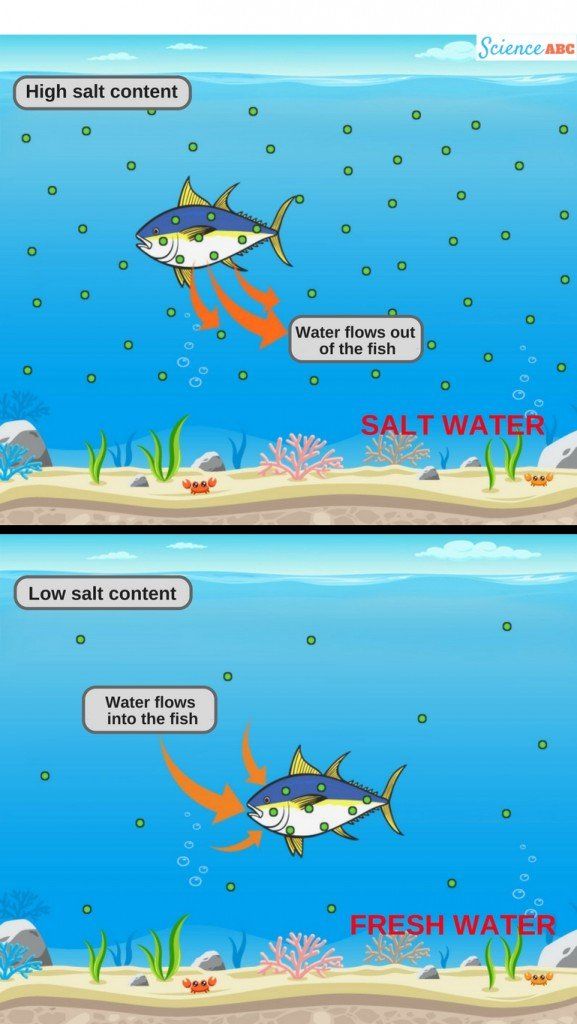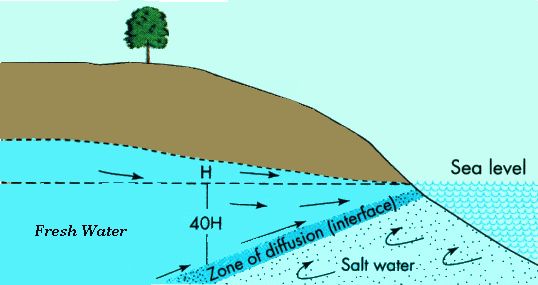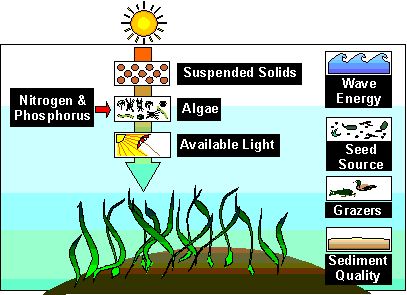What If All The Salt Water On Earth Turns Into Fresh Water ?!
Jun 05, 2019 • 73 views
What would our world look like if we took the salt out of the sea?
Where do you go to quench your thirst? The kitchen sink? The local bar?
In the 21st century, you don’t have to go that far for fresh water. But still, supply is running out.
What if we didn’t have to worry about water consumption?What if you could drink and shower as much as you wanted?What if a trip to the well, and a trip to the beach were one and the same?
You might give a lot for these privileges. But how much would it really cost?
The first big question we have to ask is,why is the ocean so salty to begin with?
Well, it wasn’t always like that. About 3.8 billion years ago, Earth’s surface had finally cooled to the point that water vapor turned to liquid; no salt added.
That’s right! A really, really long time ago, the oceans were fresh water!
But that wasn’t going to last. Whenever it rains, carbon dioxide from the air dissolves into the falling water. This makes the rain slightly acidic, and when it falls, it causes rocks to erode. From there, rainwater slides towards nearby rivers and streams, taking loose salt and minerals along with it. From there, this runoff flows from rivers into the ocean.
Add to that any additional salt and minerals that would be expelled from hydrothermal vents or submarine volcanoes, and then consider that this whole process has been recurring more or less consistently for 3.8 billion years! That’s a lot of salt!
In fact, there’s so much salt in the ocean, that if you spread it evenly across all the land on Earth, it would amount to one towering layer of salt that’s 40 stories tall! 97% of all the water on Earth is saline. And we’ve gotta assume it’s for a reason. So what would our world look like if we took the salt out of the sea?
Freshwater oceans sure do sound like a godsend! Right now, it’s predicted that a third of the world will be facing chronic water shortages by 2025. But at our current rate of our consumption, the global demand for fresh water doubles every 20 years.
So maybe freshwater oceans would actually yield a good outcome this time?
Nope. A sea without salt would decimate marine life and dramatically affect our weather and temperatures, making human life on Earth very difficult, if not impossible.
There are roughly 228,450 species in the ocean, and as many as 2 million more to be discovered. But if the ocean were to become desalinated, we’d never find them!
Most of the life forms, plant and animal, are dependent on salt water for their biology. Precipitating all the salt out would cause an ecological disaster.
Much of the life in the oceans would die very shortly after. On top of that our weather will be affected. salt water has a much lower freezing temperature and without salt more of the oceans would freeze during winter, the couple degrees difference can change the 'coastline' by miles and miles. I'm also sure it would mess with the ocean currents, possibly stopping them. and alter the evaporation rate, making it easier which would allow for more and greater storms.

Since most of the water would still need to be transported to people (unless everyone moved to the coast), there would be no reason to treat the whole ocean only what is going to be removed and transported to those in need.
There's no possible way of resolving the impact to the ecosystem either...very few species are capable of crossing salt water into fresh water and this salt precipitation event would likely become a mass extinction event that would rival the meteor impact that ended the dinosaurs as far as number extinct species is concerned. We're not talking a few salt water fish either, we're talking every last living creature in the ocean, including many that we're not even aware of yet. I'm not sure if there is a single fresh water Cephalopod for example. Good chance you'd cause a massive plankton die off with this as well.
Saltwater fish, and other ocean creatures evolved to be able to drink saltwater to stay hydrated, and get rid of excess salt. Not all sea creatures do this the same way, but being able to pump out excess salt is crucial to surviving in the ocean. Some species, like salmon, have adapted to tolerate freshwater and saltwater. But for the most part, all saltwater species would perish. This includes underwater algae, which, believe it or not, accounts for half the photosynthesis that occurs on earth!

Photosynthesis plays a vital role in supplying our planet with oxygen. Since trees and plants convert carbon dioxide from the atmosphere into the air we breathe! So without algae, not only do we get less oxygen, we also have a lot more carbon dioxide in our atmosphere! This intensification of the greenhouse effect would make some parts of the world unbearably hot.
You’d definitely notice this intense heat near the Equator, since our ocean currents wouldn’t be circulating warm water and air the way they used to.

Convection currents help warm water from the equator get farther north, while colder water from the north is able to cool hotter areas down south. At the Equator, warmer water can carry more salt, so this denser water sinks lower, while cooler water flows over top of it. And in the far north, the water gets cold enough to freeze and form sea ice. Salt gets left behind as the water freezes, and naturally, this makes colder water up north denser, allowing it to sink to the bottom to make room for the incoming warmer water that’s worked its way up from the South.Without salt, the whole process breaks down.
Earth’s extremities would freeze, while weather would intensify around the equator. For one thing, hurricanes would be a lot more frequent, and a lot more deadly! But at this point, our weather and our climate would be totally different from how we know it now! How long would we survive to see all these changes? Not long at all. You’d either freeze, overheat, die in a natural disaster, or starve to death!
With significantly less photosynthesis, and climates that are either extremely cold or extremely hot, our world would no longer support the diverse plant life it has now. The entire food chain would collapse, most species would die, including humans, since crops we rely on for sustenance would all disappear! So, when we say ocean salinization is important, don’t take it with a grain of salt!
